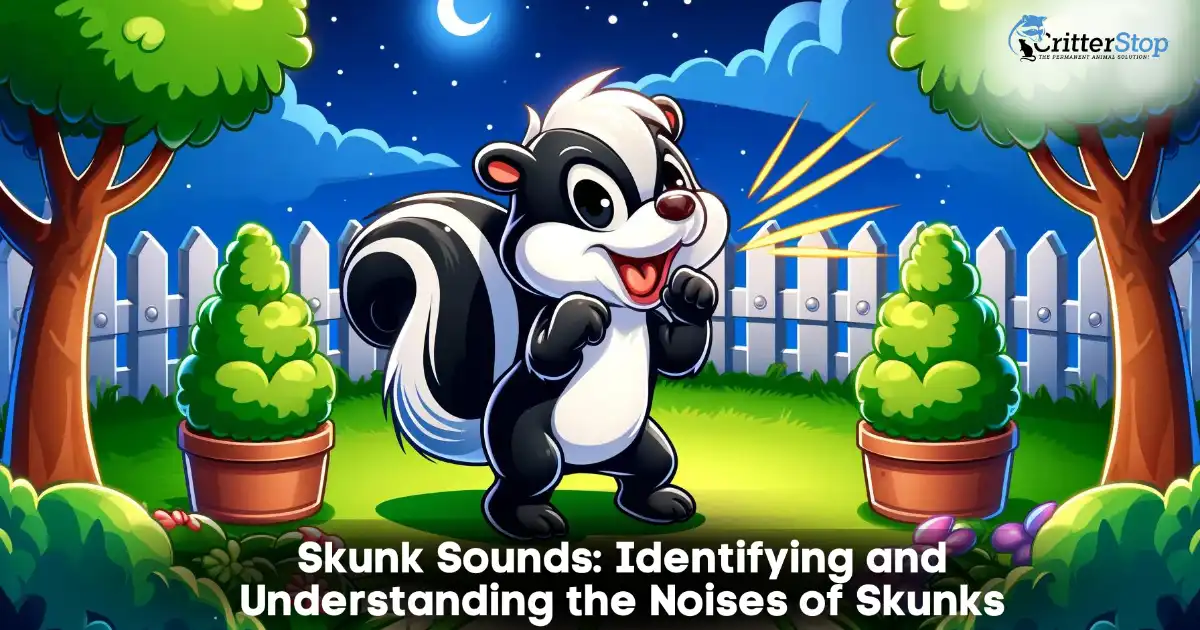
Skunks are known for their pungent odor, but they also have a unique way of communicating through sound. Skunk sounds can range from hisses and growls to chirps and squeals. Understanding these sounds can provide helpful hints into the behavior of these captivating creatures.
One of the most recognizable skunk sounds is the warning hiss. When a skunk feels threatened, it will arch its back, raise its tail, and emit a loud hiss. This warning is often followed by a display of the skunk's signature defense mechanism - a spray of noxious liquid. However, not all skunks are quick to use this defense, and some may resort to other sounds to ward off potential predators.
Skunks also use sounds to communicate with each other. During mating season, males will emit a series of chirps and grunts to attract females. Mothers will also use a specific vocalization to call their young, who are born blind and deaf. By listening to and understanding skunk sounds, researchers can better understand these elusive creatures and their behavior in the wild.
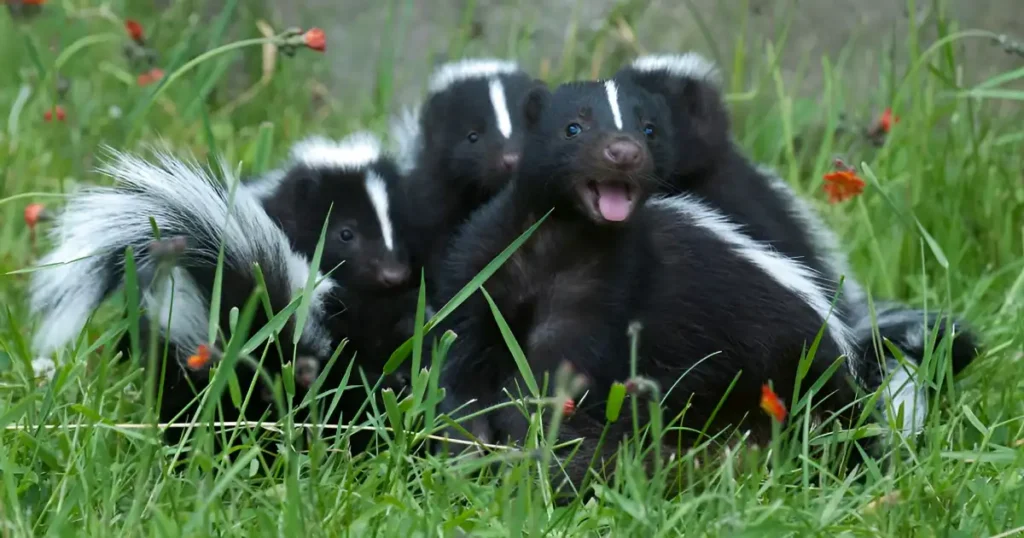
Skunks are known for their distinctive black and white striped appearance and their potent odor. However, skunks also make many noises that are crucial for communication and survival. Understanding skunk vocalizations can help you better understand these fascinating creatures and avoid potential conflicts.
Skunks make a range of sounds, including hissing, growling, and chattering. However, the most well-known skunk sound is the spray, which is a defensive mechanism used to deter predators. Skunks will often stomp their feet and raise their tails before spraying, giving a warning to potential threats.
In addition to the spray, skunks also make a variety of other noises. When agitated or threatened, skunks may emit a high-pitched squeal or scream. This sound is often accompanied by a defensive stance, with the skunk standing on its front legs and arching its back.
Skunks may also make sounds when they are mating or communicating with other skunks. These sounds can include chirping, purring, and grunting.
Skunk vocalizations can provide important clues about their behavior and intentions. For example, a skunk's warning spray is a clear sign that it perceives a threat and is willing to defend itself. If you hear a skunk squeal or scream, the animal is likely feeling agitated or scared.
Skunks may also make sounds to communicate with other skunks. For example, chirping and purring may be used during courtship or to signal submission. Grunting may be used to establish dominance or to warn others to stay away.
Overall, understanding skunk vocalizations can help you stay safe and avoid conflicts with these fascinating creatures. If you encounter a skunk, it is important to give it plenty of space and avoid startling or threatening it. You can easily coexist peacefully with these unique animals, all you need is a little knowledge and caution.
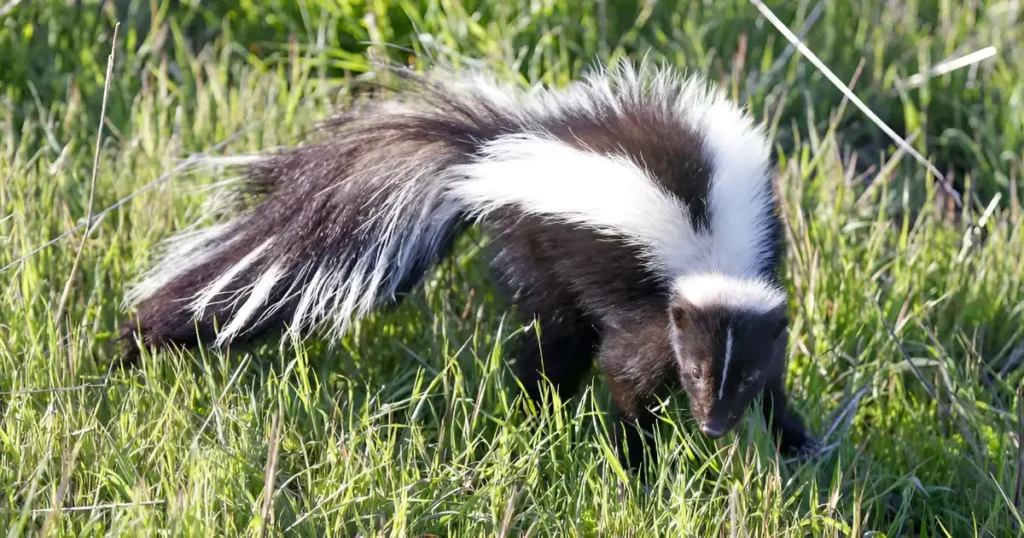
Skunks are known for their distinctive odor, but they also make a variety of sounds, especially at night. This section will go over the different sounds that skunks make after dark.
Skunks are primarily nocturnal animals, which means that they are most active at night. During this time, they may make a variety of sounds, including hissing, growling, and chattering. However, the most common sound associated with skunks is their spray, which is used as a defense mechanism when they feel threatened.
Skunks may also make a screaming sound at night, which can be mistaken for a human scream. This is often a sign of distress or fear and may be accompanied by other defensive behaviors, such as raising their tail or stomping their feet.
Interpreting skunk sounds after dark can be challenging, but there are some tips to remember. To start, you must keep in mind that skunks are primarily nocturnal animals, so any sounds you hear after dark are likely to be from skunks.
Second, skunks are generally non-aggressive animals, and will only use their spray as a last resort. If you hear a skunk screaming or making other defensive sounds, it is best to give them plenty of space and avoid approaching them.
Finally, it is important to remember that skunks are an important part of the ecosystem and play an important role in controlling insect populations. While their odor may be unpleasant, they are generally harmless to humans and should be treated with respect and caution.
In conclusion, skunks make a variety of sounds at night, including hissing, growling, and screaming. While these sounds can be alarming, it is important to remember that skunks are generally non-aggressive and should be treated respectfully and cautiously. If you encounter a skunk after dark, give them plenty of space and avoid approaching them.
Skunks are known for their potent odor, but they also make distinct sounds during mating season. Skunks mate in the late winter or early spring, and males will emit a series of grunts and growls to attract females. The sounds are low-pitched and can be heard from a distance.
During copulation, the male will emit a high-pitched squeal, while the female may make a low-pitched purring sound. Skunk mating sounds are important for reproduction, as they allow males and females to find each other and mate successfully. However, these sounds can also be a nuisance to humans, as they can be loud and disruptive.
Overall, skunk mating sounds are a natural part of the reproductive process and serve an important purpose in the animal kingdom.
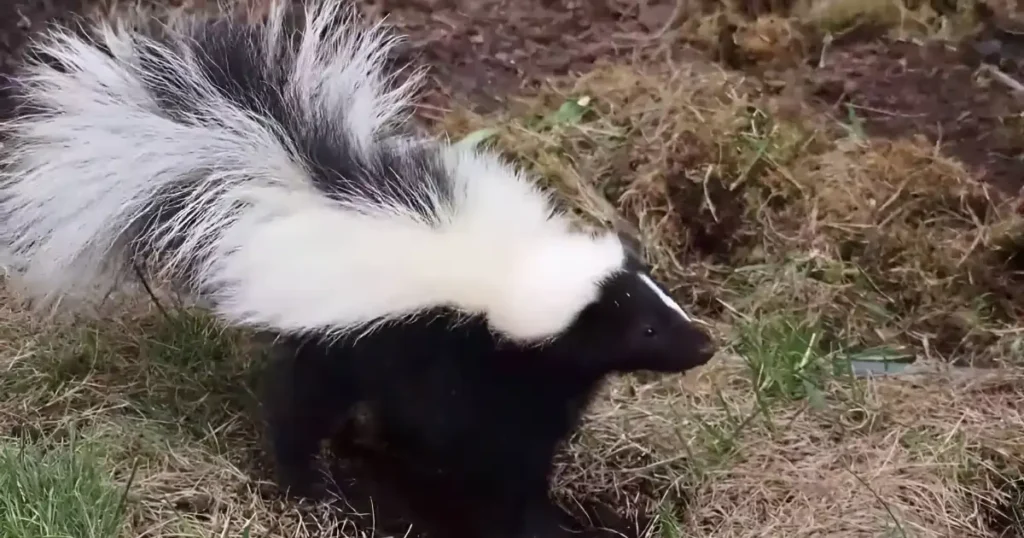
Skunks are known for their powerful and unpleasant spray, which they use as a defense mechanism against predators. However, before spraying, skunks will often try to warn their aggressors with various sounds.
When a skunk feels threatened, it may emit a warning growl or hiss to scare off potential predators. If the threat persists, the skunk may arch its back, raise its tail, and stomp its feet, all signs that it is ready to spray.
The actual spray is accompanied by a distinct sound, which is often described as a high-pitched hiss or a low-pitched growl. This sound is caused by the skunk releasing a mixture of chemicals from its anal glands, which can travel up to 10 feet and cause irritation to the eyes, nose, and throat.
In addition to these warning sounds, skunks may also emit a piercing scream when they are distressed or under attack. This sound is often mistaken for the sound of a human or animal in pain and can be quite alarming.
Overall, skunks have a variety of defense mechanisms at their disposal and will only resort to spraying as a last resort. By understanding the warning signs and sounds of a skunk, humans and other animals can avoid getting sprayed and coexist peacefully with these fascinating creatures.
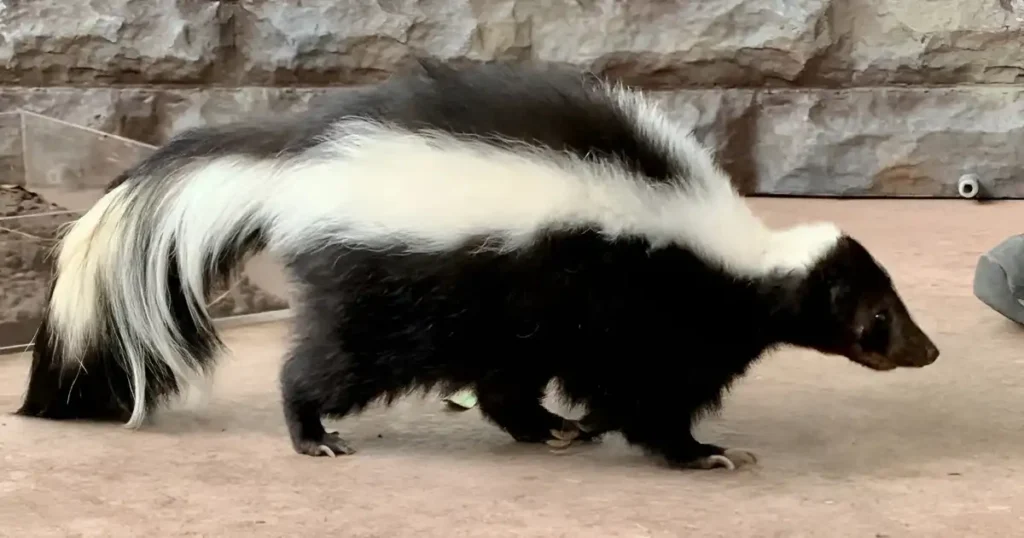
Skunks are known for their distinctive black-and-white appearance and their habit of spraying a foul-smelling liquid when they perceive a threat. Despite this, skunks also communicate through a variety of sounds and body language.
Skunks use a range of vocal signals to communicate with each other. They make various sounds, including hisses, chirps, and growls. When threatened, they may also emit a warning sound, which is a high-pitched scream.
Skunks are social animals and use a range of body language to communicate with each other. The way they position their tails can signal their intentions. When a skunk raises its tail, it is a sign of aggression. When a skunk lowers its tail, it is a sign of relaxation.
Skunks also use scent to communicate with each other. They have scent glands located on their anus, which they use to mark their territory and communicate with other skunks. The scent is very strong and can be smelled from a significant distance.
In conclusion, skunks communicate with each other using a range of sounds and body language. They are social animals who use their tails and scent glands to signal their intentions and mark their territory. Understanding skunk communication can help us better understand these fascinating creatures.
Are you hearing annoying skunk sounds at night? Our expert team at Critter Stop has an effective and permanent solution to your problems! We service commercial and residential customers in Dallas, Texas, have a five-star reputation, and offer industry-leading guarantees because we know how to get skunks out of your property for good. Contact us now at (214) 234-2616 and book a free inspection and estimate today!
Skunks are known for their distinct odor, but they also make various noises. The most common sound they make is a hiss, which is a warning sign that they feel threatened. Skunks can also make a growling noise, which is a sign of aggression.
Skunks use different sounds to communicate different messages. A hiss is a warning sign, while a growl is a sign of aggression. Skunks may also make chirping noises, which can indicate that they are happy or excited.
Skunks are nocturnal animals, and they are most active at night. During this time, they may make a variety of vocalizations, including hissing, growling, and chirping. Usually, these sounds mean that the skunk is feeling threatened or is trying to communicate with other skunks.
Chirping is a common sound made by skunks, and it can signify a variety of things. Skunks may chirp when they are happy or excited, or when they are trying to communicate with other skunks. Chirping can also indicate anger, so being cautious when approaching a chirping skunk is key.
Yes, skunks can communicate with each other through specific sounds. They use different vocalizations to communicate a variety of messages, such as signs of aggression or warning signs. Skunks may also use body language, such as tail raising or stomping, to communicate with each other.
A screaming noise made by a skunk is usually a sign of distress or fear. Skunks may make this noise when they feel threatened or when they are in danger. It's important to give skunks space and avoid approaching them when making this noise, as they may feel cornered and become aggressive.
Visit our Critter Library and learn more about our furry friends